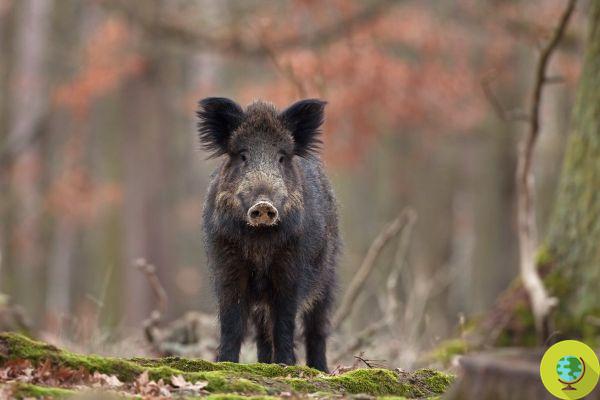
A hybrid species of pig is becoming popular in Fukushima. A discovery that stunned Japanese scientists
He is about to end up run over, his mother saves himA hybrid species of pigs is depopulating in Fukushima. A discovery that has stunned Japanese scientists who are studying the effects of radiation on animals.
A genetic study conducted by the University of Fukushima has found that there is a new species of wild boar, born from the crossing of these animals with domestic pigs that escaped from farms after the tsunami and earthquake destroyed the area, causing one of the most serious nuclear disasters in history.
Scientists at the University of Fukushima used genetic tests to trace the legacy of the terrible event on the landscape and to monitor the impact of radiation on wildlife. Specifically, they sought to find out what happened to wild animals in a radiation-contaminated area that is suddenly abandoned by humans and, at the same time, overrun by domestic livestock.
The genetic sequences of 338 wild boars collected between 2006 and 2018 across the region were analyzed. The results of the study revealed the absence of genetic mutations due to radiation. But unexpectedly, the researchers made another discovery: the wild boar had mated with pigs creating an unknown hybrid species that now populates the area.
Although the radiation did not cause a genetic effect, the invasive species of domestic pigs did. Once the people were gone, the boars took over,
explains Donovan Anderson, a researcher at the University of Fukushima in Japan.
The results, published in the journal Proceedings B, paint an unknown biological picture, a real "biological invasion" by this new species:
I think the pigs haven't been able to survive in the wild, but the wild boar has thrived in abandoned cities - because it's hardy, Donovan Anderson added.
The exclusion zone was lifted in 2018, but officials struggled to retrieve data relating to these animals, which literally invaded the zone, free from human presence.
However, the situation appears to be returning to pre-disaster "normalcy". In fact, according to the authors of the study, the new invasive genes are disappearing. In other words, the return of man will likely put an end to this new species:
Humans are truly the only predators of these wild boars. So when people come back, it will be really interesting to see what these animals do, Anderson added.
In fact, another previous study published in Nature had identified traces of radionuclides and in particular of cesium in wild boars that lived near Fukushima.
In conclusion, we have shown that the level of wild boar contamination is still relatively high, even though it had been 8-9 years since the Fukushima accident. Over time, those levels may have dropped but more studies will be needed to confirm this.
Sources of reference: BBC, Royal Society
READ also:
- Fukushima: research on the long-term effects of the nuclear disaster on wild animals and plants begins
- Fukushima: the tragedy of the animals left to die in the evacuated area (video)
- Wildlife returns to populate Fukushima: without human activity, animals live better despite radiation


























